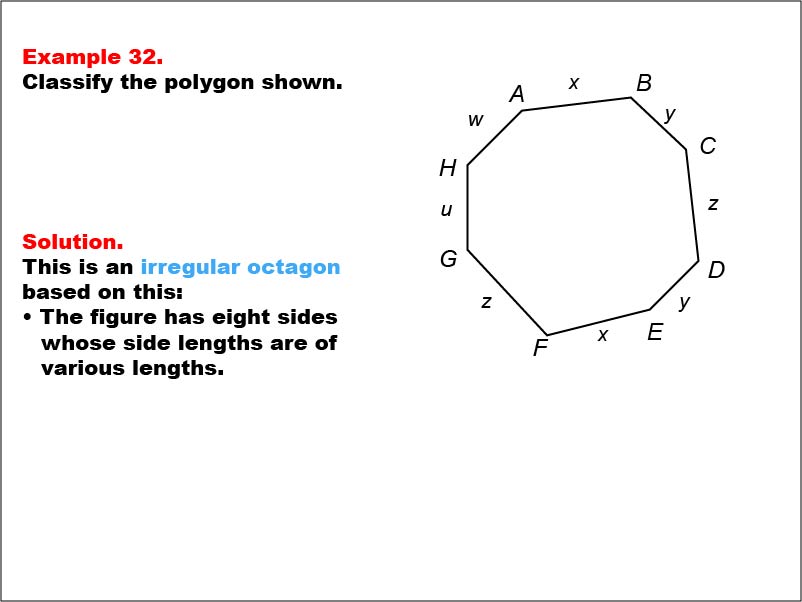
Display Title
Math Example--Polygons--Polygon Classification: Example 32
Display Title
Math Example--Polygons--Polygon Classification: Example 32

Topic
Polygons
Description
This example presents an irregular octagon with sides labeled as w, x, y, z, and u, indicating varying lengths. It illustrates another case of an irregular octagon, demonstrating that the presence of different variables for side lengths suggests irregularity.
Understanding polygon classification is crucial in geometry as it helps students recognize and categorize shapes based on their properties. This collection of examples highlights the importance of considering side lengths when determining the regularity of octagons.
Exposure to multiple worked-out examples is vital for students to develop a comprehensive understanding of polygon classification. Each example presents a unique scenario, allowing students to apply their knowledge and reinforce their ability to analyze polygons based on given information.
Teacher's Script: Let's examine this octagon together. We see sides labeled with different variables. What does this suggest about the potential side lengths? How can we use this information to classify the octagon as irregular? Think about why using different variables for side lengths indicates that the octagon is not regular, even without knowing the specific lengths.
For a complete collection of math examples related to Polygons click on this link: Math Examples: Polygon Classification Collection.
| Common Core Standards | CCSS.MATH.CONTENT.5.G.B.3, CCSS.MATH.CONTENT.7.G.B.6 |
|---|---|
| Grade Range | 6 - 8 |
| Curriculum Nodes |
Geometry • Polygons • Definition of a Polygon |
| Copyright Year | 2013 |
| Keywords | polygons, classification |